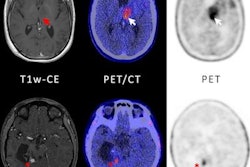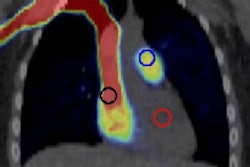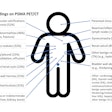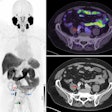Dear Molecular Imaging Insider,
Welcome to the first 2023 issue of our Molecular Imaging Insider, and Happy New Year!
The year is off to a strong start, as indicated by our Insider Exclusive. Researchers in the U.K. suggest that somatostatin receptor 2 (SST2)-targeted radiotracers hold major promise for diagnosis and therapeutic monitoring in patients with large-vessel vasculitis.
Importantly, these SST2 tracers are already implemented clinically for other indications (primarily, neuroendocrine tumors), which means they could be rapidly incorporated into clinical practice, the researchers suggest. Read about the findings in our Insider Exclusive.
Another reason for 2023's strong start is the U.S. Food and Drug Administration's approval of Leqembi (lecanemab) treatment for individuals with Alzheimer's disease. The approval has significant implications for nuclear medicine physicians, as amyloid PET imaging is used to confirm the presence of beta-amyloid pathology, a hallmark of the disease.
In other Alzheimer's disease stories, researchers suggest that tau PET imaging consistently provides the best prediction of change in cognitive function in Alzheimer's disease patients with mild cognitive impairment or mild dementia. The scans also show promise for the diagnosis of early progressive supranuclear palsy.
Also, with the dangers of vaping highlighted in news headlines recently, timely research by a team at the University of Pennsylvania points toward a unique inflammatory response due to its use. The findings are based on the first PET imaging study in electronic cigarette users.
In other developments, new uses for PET radiotracers led the way, as we reported in the following stories:
- A German team suggested PET imaging with an amino acid radiotracer (F-18 FET) can help guide treatment decisions in children with brain tumors.
- Researchers in China found PET/CT imaging with experimental radiotracer F-18 PSMA-1007 may improve the care of patients with recurrent prostate cancer.
- Belgian researchers indicated that PET/MRI scans can reveal significant structural and metabolic brain abnormalities in patients with visual snow syndrome.
- Meanwhile, radiomics and artificial intelligence research remains hot. One study we covered showed that PET/CT-based radiomics could help preselect patients with non-small cell lung cancer for immunotherapy; also, a team in Italy developed a machine-learning model based on PET imaging that could help clinicians assess the aggressiveness of endometrial cancer prior to surgery.
Finally, with increasing prostate cancer rates in mind, a team in Finland aimed to validate the use of shorter whole-body SPECT/CT bone scan times in these patients. The group's technique reduced total acquisition time from 40 minutes to as low as 16 minutes without any loss of diagnostic performance.
That's all for now. Be sure to check back regularly for more news in your Molecular Imaging Community!





















